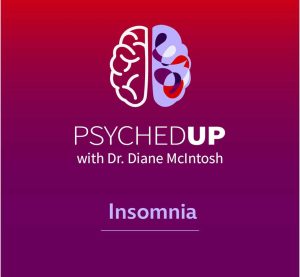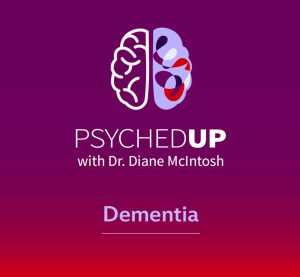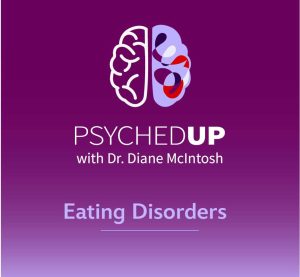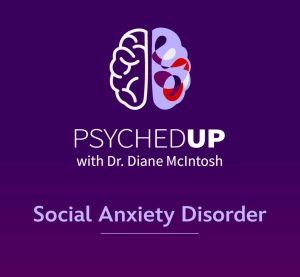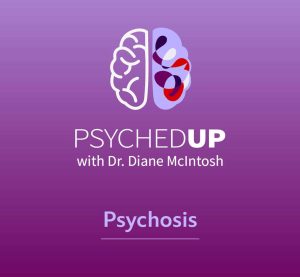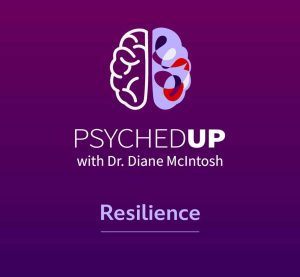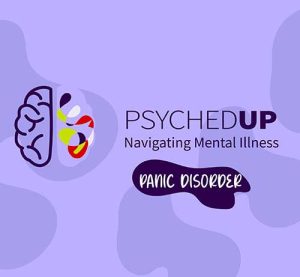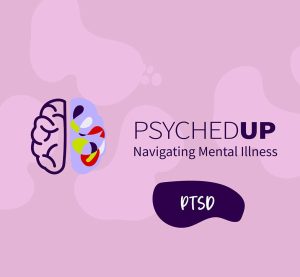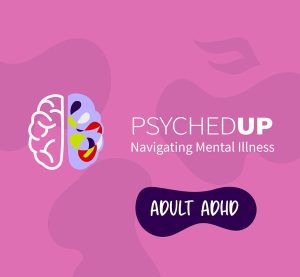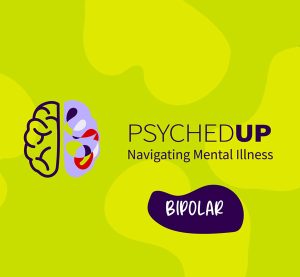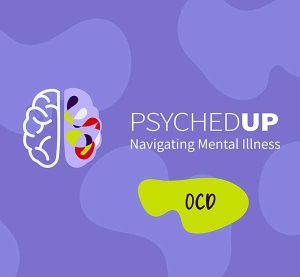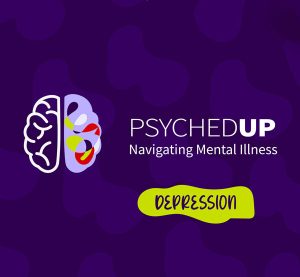Thinking of suicide or worried about someone you know? Call or text 9-8-8, toll-free, anytime, for support.
This is OCD: Episode 2
In this episode of PSYCHEDUP, Nadia shares her personal experience with OCD, offering a vivid glimpse into how even a simple trip to the park with her kids could spiral into an overwhelming storm of thoughts and emotions.
In this conversation, Dr. Diane McIntosh brings her signature blend of compassion and expertise to the discussion, breaking down the symptoms and diagnosis of OCD. Joined by her colleague and friend psychologist Dr. Randy Mackoff, she dives into the most effective treatment for this life-altering disorder.
Tune in for an insightful, empathetic look at OCD and the path to reclaiming control.

PODCAST GUEST
Dr. Randy Mackoff, PhD
Dr. Randy Mackoff is a registered psychologist in British Columbia. He has a private clinical practice where he provides psychological treatment for a wide range of issues, including but not limited to depression, anxiety, PTSD, coping with psychosis, and marital therapy. He is a retired Professor in the Criminology Department at Douglas College and a past Chairperson of the Criminology Department. He is a Clinical Associate in the Clinical Psychology Department at Simon Fraser University, providing clinical supervision to graduate students. He currently consults with law enforcement agencies in Crisis Negotiations, Undercover Operations, Witness Protection, Psychological Support for witnesses, Source Suitability, Major Crimes, Recruiting, and Human Resources. He is a designated Vancouver Police Department Psychologist and represents them at the Major Cities Chiefs Association Psychology meetings. He is the Co-Chair of the Psychology Committee for the Canadian Association of Chiefs of Police (CACP).
Enjoying PSYCHEDUP?
Rate and review the podcast to help us reach more listeners.
Episode Highlights

3:53
Nadia describes her experience living with OCD

10:50
Dr. Diane McIntosh and Dr. Randy Mackoff discuss effective ways to treat OCD
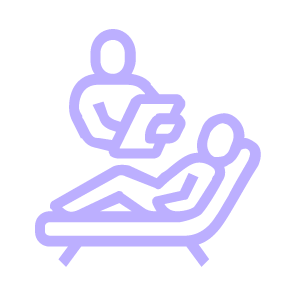
18:27
Dr. Diane McIntosh on why talk therapy is an important part of OCD treatment
Key quotes from This is OCD
"A real challenge when diagnosing OCD is that patients rarely share every symptom. It's really important for people with OCD to know that the sooner they get treated, the less intense it's going to be, and the easier it will be for them to get better.”
(9:26)
“You can’t yoga your way out of OCD. You can’t yoga your way out of a severe depression. That’s part of the stigma: Medication bad! Instead, my job is to personalize the medication to meet each individual’s unique needs. And that’s the hardest thing to do, because we have to do a lot of trial and error to find the one that has the least side effects and works effectively.” 15:42
“I had a really hard time believing that I would be able to change. But, after I got on the right medication and I was getting the right help, I was able to form a meaningful relationship, get married, have kids, all the things I never thought I would be able to do in my life.” 21:35
“I was able to take both of my kids out at the same time to the mall, and I was like, that’s amazing . . . And that’s the thing about OCD. You really have to celebrate the wins, because each one increases the chance of the next success.” 22:47
Other PSYCHEDUP Episodes
Season 2
Season 1
More About OCD
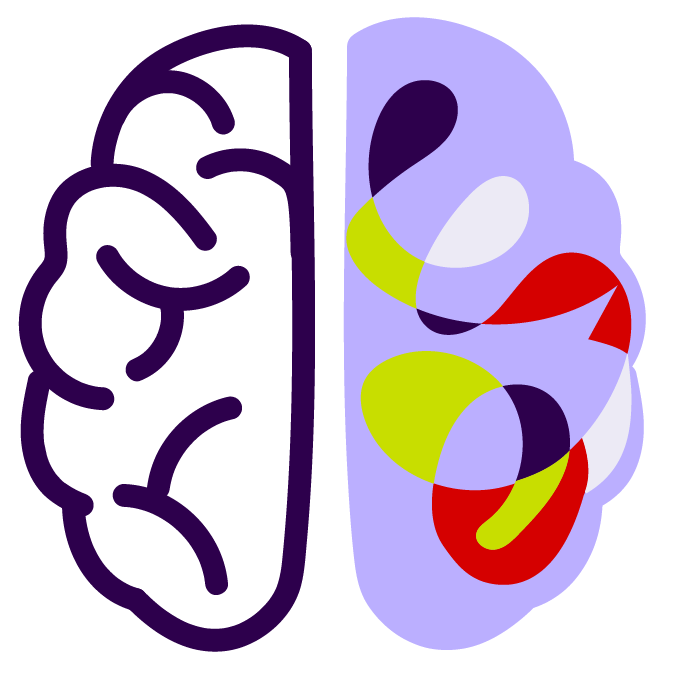
Obsessive-Compulsive Disorder (OCD) affects up to 3% of the population, with symptoms often emerging in childhood or early adulthood.
OCD involves persistent obsessions, compulsions, or both, which can significantly disrupt daily life. Obsessions are intrusive, distressing thoughts or fears, such as concerns about contamination or saying something inappropriate. Compulsions are repetitive actions or mental rituals—like excessive handwashing or counting—performed to relieve anxiety caused by obsessions.
Though many recognize their behaviors as irrational, they often feel trapped by their symptoms. Without treatment, OCD can become a chronic struggle, leaving many to suffer in silence for years.
Treating OCD often involves a combination of therapies and medication. Cognitive-behavioral therapy (CBT), particularly a technique called exposure and response prevention (ERP), can be highly effective, helping individuals resist compulsions and allowing the brain to rewire itself through neuroplasticity and weaken obsessive-compulsive patterns.
Antidepressants are commonly prescribed, sometimes alongside other medications, such as antipsychotics, for added support.
Self-help strategies, stress management, and support groups also play a key role in managing symptoms and supporting long-term recovery. While recovery can take time, persistence and professional guidance can bring significant relief and improve quality of life.
Related Posts on OCD
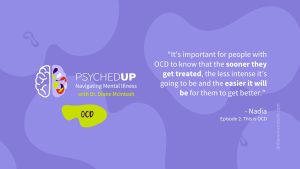
Living with Obsessive Compulsive Disorder
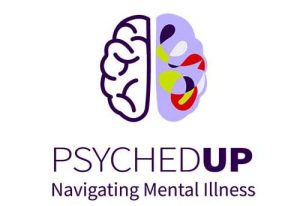
PSYCHEDUP PODCAST: Understanding and acting on mental illness



Psychiatric Guidance for Optimal Patient Care
Founded by Dr. Diane McIntosh, RAPIDS Health provides timely, effective clinical decision support for mental health diagnosis and treatment. Whether you’re a clinician or someone seeking help, we offer evidence-based, personalized treatment guidance tailored to each individual’s needs.


